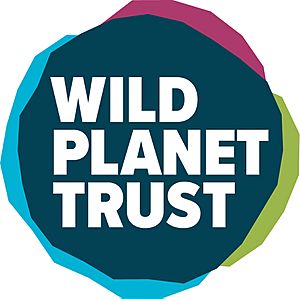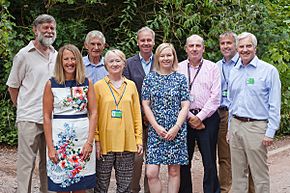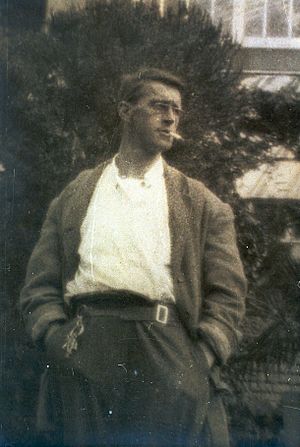Wild Planet Trust facts for kids
Wild Planet Trust is a special charity that helps protect animals and their homes. It used to be called the Whitley Wildlife Conservation Trust. This charity was created to look after Paignton Zoo after its founder, Herbert Whitley, passed away. Herbert Whitley started the zoo in the 1920s on his land in Paignton, Devon.
Wild Planet Trust also owns and manages several nature reserves in Devon, like Slapton Ley. Since 2003, it has also run Newquay Zoo and Living Coasts. All three of these zoos work with big zoo groups like BIAZA (British and Irish Association of Zoos and Aquariums), EAZA (European Association of Zoos and Aquariums), and WAZA (World Association of Zoos and Aquariums). They also help with conservation projects around the world.
Contents
What Wild Planet Trust Aims to Do
Wild Planet Trust has important goals to help our planet.
- It teaches people about protecting nature.
- It helps save animals and their homes in the wild.
- It helps save endangered animals that live in zoos.
- It encourages people to change their actions to help nature.
Learning and Education
Wild Planet Trust works with universities to teach people about zoo conservation. In 2004, they helped create a special university course with the University of Plymouth. This course helps students learn how to work in zoos and protect wildlife. The Trust also works closely with South Devon College in Paignton. They even have a classroom at Paignton Zoo for college students.
The Trust also supports students who want to do research projects at their zoos. They offer chances for students to gain experience each year.
Exciting Research Projects
Wild Planet Trust does many research projects. These projects help them learn more about animals and how to protect them.
Helping Animals in Zoos
- They are creating a quick test for a frog disease called chytridiomycosis.
- They study how much UV light captive primates need.
- They look at how to best care for very rare birds.
- They study how groups of primates live together in zoos.
- They research the behavior, food, and well-being of large birds like ostriches.
- They work on breeding Vietnamese pheasants.
- They use animal training to help manage animals.
- They develop better diets for primates to keep them healthy.
- They study how visitors affect animal behavior.
Protecting Animals in the Wild
- They help save rare frogs in Tanzania.
- They survey forest antelopes in Tanzania.
- They use camera traps to find Aders' duiker in Kenya's forests.
- They study rare whitebeam trees.
- They work to save a critically endangered plant called strapwort.
- They look for bog hoverflies using special DNA tests.
Teaching and Encouraging People
- They study how much people learn from feeding animals at the zoo.
- They research how visitors behave and get involved.
- They create tools to measure how well their education programs work.
Amazing Animals at the Zoos
The zoos run by Wild Planet Trust are home to many different kinds of animals. You can see everything from tiny poison dart frogs to tall giraffes. All these animals live in exhibits that look like their natural homes. This helps protect them and keeps them safe from becoming extinct.
The Trustees
Wild Planet Trust is guided by a group of twelve leaders called trustees. These trustees are experts in science, business, law, and other important areas. They are in charge of making sure the Trust is managed well. They also ensure that the Trust's goals to protect nature are met.
A Look Back at History
Herbert Whitley came from a wealthy family. His father, Edward Whitley, owned a brewery and was also a Member of Parliament. Herbert's father passed away in 1892 when Herbert was six. Like many children from rich families back then, he went to boarding school. In 1904, when Herbert was 18, his mother moved the family to Paignton. They took over the Primley Estate.
Herbert and his older brother William were known for raising prize-winning farm animals. But in 1910, Herbert got his first monkeys. This was the start of what would become Paignton Zoo.
In 1921, Herbert found out that Slapton Ley, a coastal lagoon about 20 miles from Paignton, was in danger of being developed. He bought the land to protect it.
Herbert also believed that zoos could teach people important things. In 1923, the Torbay Zoological Gardens opened to the public. It cost one shilling (about 5p) for adults and sixpence (about 2.5p) for children to enter. In 1924, the zoo closed briefly because of a disagreement about taxes.
In 1955, Herbert Whitley became ill and passed away on September 15, at 69 years old. He chose his friend, Philip Michelmore, to take over. Herbert's will made sure that a scientific and educational Trust would be set up. This became the Herbert Whitley Trust, which later changed its name to the Whitley Wildlife Conservation Trust in 1991.
In 1996, the zoo's name changed to Paignton Zoo Environmental Park. In 2003, the Trust built and opened Living Coasts, a coastal zoo and aquarium in Torquay. They also bought Newquay Zoo in Cornwall. This created a group of attractions focused on conservation.
The Whitley Wildlife Conservation Trust officially became Wild Planet Trust in 2019.
Wild Planet Trust helps with conservation efforts both in the United Kingdom and in other countries. Their Field Conservation and Research Department, based at Paignton Zoo, organizes these projects.
 | Frances Mary Albrier |
 | Whitney Young |
 | Muhammad Ali |




